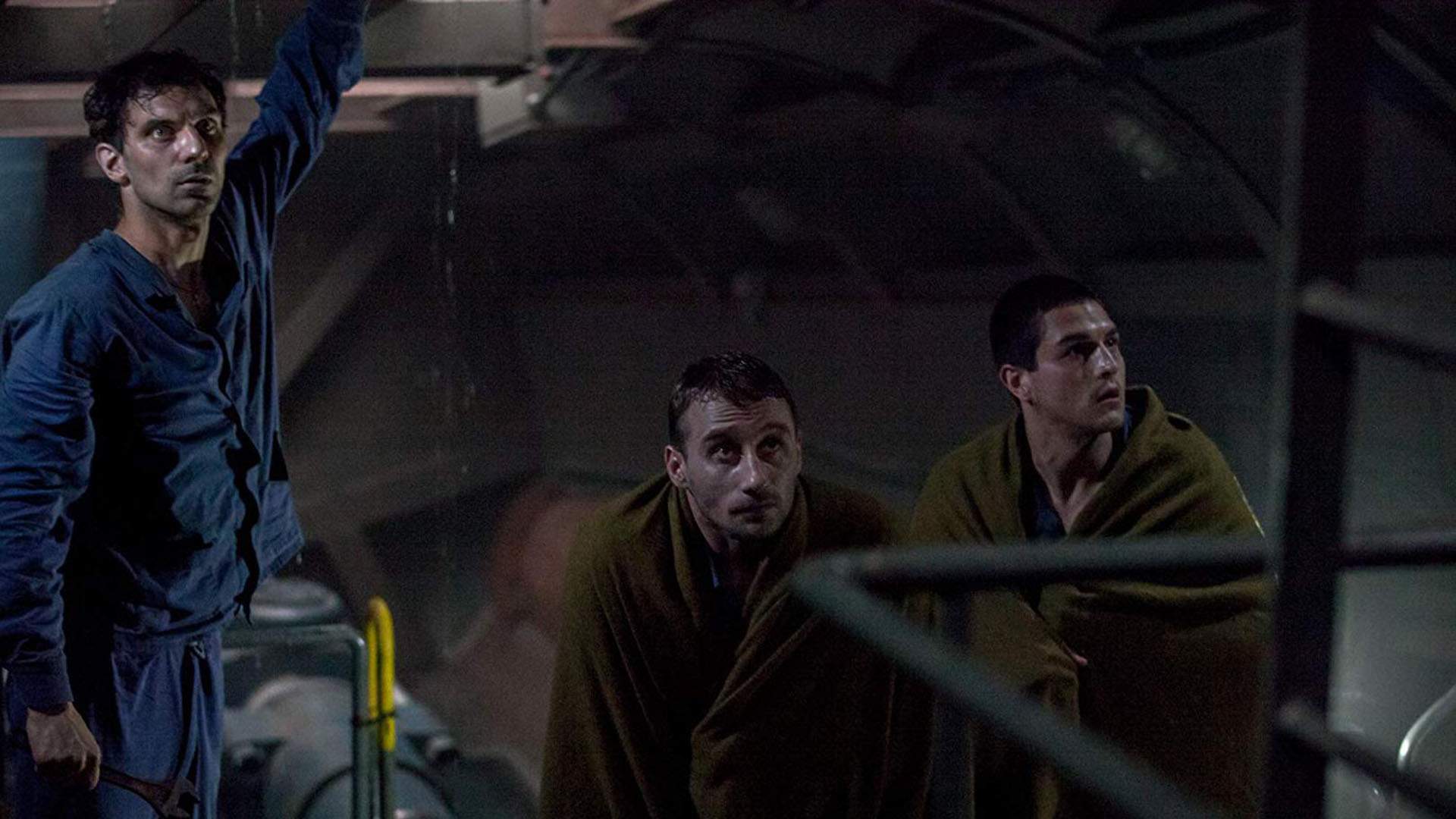Kursk
Matthias Schoenaerts, Léa Seydoux and Colin Firth star in this tense and moving recreation of the 2000 Kursk submarine disaster.
Overview
It has been a busy year for Russian incompetence, on-screen at least. After Chernobyl so blisteringly explored 1986's devastating nuclear reactor explosion and its widespread fallout, Kursk jumps forward to 2000's submarine disaster, where 118 sailors lost their lives during the sinking of a nuclear-powered vessel. The arrival of both the HBO mini-series and now this film in such short succession is a clear sign of the times — as Russia's influence, especially of the covert kind, continues to loom over world affairs, interrogating the country's high-profile misfortunes is hardly an unexpected trend. Today's filmmakers can't force certain parties in power to take Russian election meddling seriously, but they can examine how the world's largest nation by area has dealt with its own catastrophes. Kursk, like Chernobyl, doesn't provide a flattering portrait.
In August 2000, as part of the first major Russian naval exercise since the fall of the Soviet Union, Oscar-class K-141 submarine Kursk descended into the ocean's depths. Although it was merely participating in training, it carried live combat weapons, including practice torpedoes — and when one exploded onboard, it set off a chain reaction that would strand the vessel at the bottom of the Barents Sea. Those who survived the initial blast were stuck waiting. First, they waited for Russian authorities to realise what had happened, which took hours. Then, as water seeped in, and supplies and oxygen dwindled, they bided their time as repeated rescue efforts floundered. Ever-protective of their military technology, and just as determined to assert that they could take care of the problem themselves, the Russian Navy even refused international assistance, making the trapped men wait longer still.
That's how Thomas Vinterberg tells the tale of the Kursk, with the Danish filmmaker teaming up with Saving Private Ryan screenwriter Robert Rodat to adapt Robert Moore's non-fiction book A Time to Die. For the sake of heightened drama, some facts and timelines have been massaged, however the overall premise — that a Russian submarine sank, the country was poorly equipped to handle it and people paid with their lives — remains. So too does the notion of a nation more concerned with perception than its population; one in which citizens are expected to prove their unflinching patriotism by paying the ultimate price, but where the government won't dare risk its reputation to save them in return. Understandably, this damning truth lingers over every moment of Kursk, making an already sombre story even more so. Indeed, it's as evident on-screen as the grey colour scheme, the oppressive pressure felt in the movie's submarine scenes, and the use of different aspect ratios to send an emotional message.
While he's working with a budget far beyond anything he might've dreamed of, or wanted, back when he co-founded the fiercely independent Dogme 95 cinema movement with Lars von Trier, Vinterberg is in comfortable thematic territory. Boasting a resume littered with moral quandaries, including the recent The Hunt and Far from the Madding Crowd, the writer-director has always been a keen observer of folks in a bind. That's what captain-lieutenant Mikhail Averin (Matthias Schoenaerts) and his men find themselves in, to put it mildly, as the clock ticks down and the end we all know is coming inches closer. Meanwhile, Mikhail's wife Tanya (Léa Seydoux) fights for both action and answers back above sea level, numerous admirals (Max von Sydow and Peter Simonischek, primarily) either toe or flout the government line, and offers of British help by Commodore David Russell (Colin Firth) keep falling on stubborn ears.
Kursk doesn't spend enough time with any one person to be called a character study, and its broad scope necessitates more than a few shortcuts and cliches. When the movie opens with the sound of gasping breaths, only to show Mikhail timing how long his pre-teen son Misha (Artemiy Spiridonov) can stay underwater in the bathtub, it's an obvious move, for example. Still, in serving up an overview of the disaster's affected parties, and cycling between them as they endeavour to weather the horrific situation, Vinterberg's film is never less than compelling and heartbreaking. While his cast helps considerably, especially Schoenaerts and Seydoux, the director paints a powerful picture of tragedy, courage and (on the part of the Russian officials) sheer arrogance. This is a story of sailors scrambling to wade through life-or-death terror, of their loved ones refusing to kowtow to the authorities, and of the conflict bubbling beneath the rescue attempts — and it's as moving and gripping as the real-life scenario and the men lost to it demands.





